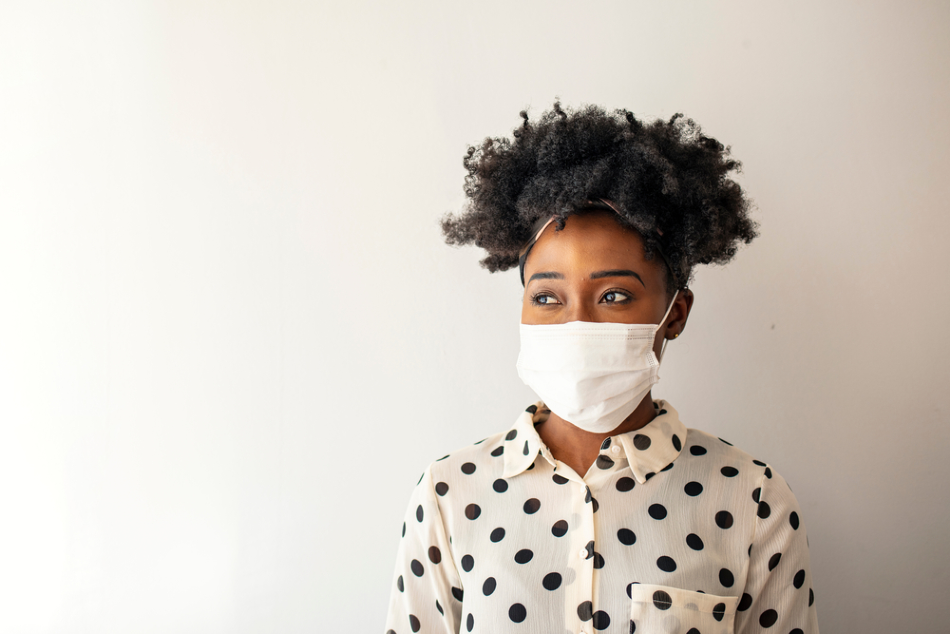
Image Credit: Dragana Gordic/Shutterstock.com
The current global crisis of the COVID-19 pandemic has rapidly increased the demand for face masks, with one commonly available mask (N95) filtering out around 95% of fine dust particles. However, these types of masks come with certain limitations with regard to reusability. Research teams across the world have developed reusable, nanotechnology-based face masks for increased safety from virus particles.
Reusable Nanotechnology-Based Face masks
Researchers at the Korea Advanced Institute of Science and Technology (KAIST) has recently announced its development of a reusable nano-filtered facemask.
Professor Il-Doo Kim of KAIST claims that this mask retains its filtering efficiency and sturdy frame even after 20 washes.
The nano filters used in the development of the facemask can filter out the finest dust particles. This reusable nano-filtered facemask would be an economical option for daily usage as disposable masks often end up being very expensive when purchasing it on a regular basis.
This type of facemask could also relieve the challenges arising from the scarcity of face masks. The research team at KAIST is awaiting approval from the Ministry of Food and Drug Safety for launching their product in the commercial market.
The structure and alignment of nanoparticles in the nano filters of this facemask make it better than conventional disposable face masks. These commonly available face masks have to be disposed of after one use as they lose their electrostatic function when exposed to water molecules. Therefore, they cannot maintain proper air filtration.
Click here to find out more about nanofiber production equipment.
Following the insulation block electrospinning process, Professor Kim at KAIST developed the facemask with the help of orthogonal nanofibers. The structure of the nanofibers minimizes air filter pressure and enhances the filtration process.
The nanofiber filter of the face masks is water-resistant and has a 94% filtration efficiency in 20 repeated bactericidal tests.
It could also retain the structure of the nano-membrane, even after it was hand washed repeatedly.
No deformations in the nanomembrane were observed, even after it was soaked in ethanol for more than three hours.
The research team said that this facemask could be reusable for around one month and the inner filter could be replaced if required.
Professor Kim recently founded a startup company called “Kim Il-Doo Research Institute”, which can produce around 1,500 nanofiber filters per day.
Development of Face Masks using Breathable Nanocellulose
Dr. Thomas Rainey and his research team at Queensland University of Technology (QUT) have developed nanotechnology-based biodegradable face masks.
The facemask filter is made up of a cellulose nanofiber component. These nanofibers are produced from waste plant material such as agricultural waste, sugarcane, bagasse, etc., and can be easily biodegraded.
The breathable nanocellulose material filters out 100-nanometer particles, which is the size of several viruses.

 Find out more: What is nanocellulose?
Find out more: What is nanocellulose?
The breathable quality of these face masks enhances the comfort factor, reduces fatigue, and helps people to wear masks for a more extended period of time.
The researchers claimed that people can also wear breathable masks with respiratory conditions. When the property of breathability was compared with other commonly used face masks, these masks revealed higher breathability than surgical and disposable masks.
Disposable face masks are not able to filter out “virus size nanoparticles”, which would be a desirable option in the current COVID-19 pandemic situation.
Scientists believe that even though the face masks contain a disposable filter cartridge, the material required to manufacture these filters are extremely inexpensive, which means that the cost of each facemask would remain affordable for single use.
Read more: Antiviral Nanostructured Surfaces for the Inactivation of SARS-CoV-2
Reusable Face Masks with Antimicrobial Property
An Israeli startup Sonovia designed reusable face masks with antimicrobial properties. This is made up of cotton incorporated with metal-oxide nanoparticles. The usage of zinc-oxide nanoparticles showed the efficiency of killing germs and the capacity to last for more than 100 washes.
At present, these masks are highly efficient in blocking almost 100% of bacteria and 98% of 5-micron particles. However, the company aims high, i.e., 3 microns filtration. As their long-term plan, the research team envisioned a future model that will have the option to incorporate a 0.2-micron filter to filter high-velocity aerosols.
These masks are commonly referred to as SonoMask, and have been commercially available since March 2020.
SonoMask
Video Credit: NikKru Gadgets/YouTube.com
Initially, the company had donated large numbers of masks to hospitals and nonprofit charitable organizations in many countries, including Israel and Germany. Sonovia produces around 20,000 masks each day in the factory located in the northern part of Israel and sells it to retailers and medical institutions all around the world.
Sonovia research scientist Jason Migdal said that Sonovia would soon be listed on the New York Stock Exchange, and it is aiming to expand its technological application from just face masks to all PPE by the end of 2020.
Israeli company Sonovia makes anti-viral, reusable masks against COVID-19
Video Credit: ILTV Israel News/YouTube.com
References and Further Reading
Kaist (2020) Recyclable Nano-Fiber Filtered Face Masks a Boon for Supply Fiasco. [Online] Available at: https://news.kaist.ac.kr/newsen/html/news/?mode=V&mng_no=6530&skey=&sval=&list_s_date=&list_e_date=&GotoPage=1 (Accessed on 14 July 2020).
Widdowson, N. (2020) New mask material can remove virus-size nanoparticles. [Online] Phys.org. Available at: https://phys.org/news/2020-04-mask-material-virus-size-nanoparticles.html (Accessed on 14 July 2020).
Leichman, A. K. (2020) Israeli antimicrobial washable facemasks enter US market. [Online] Israel21c. Available at: https://www.israel21c.org/israeli-antimicrobial-washable-facemasks-enter-us-market/ (Accessed on 14 July 2020).
Disclaimer: The views expressed here are those of the author expressed in their private capacity and do not necessarily represent the views of AZoM.com Limited T/A AZoNetwork the owner and operator of this website. This disclaimer forms part of the Terms and conditions of use of this website.